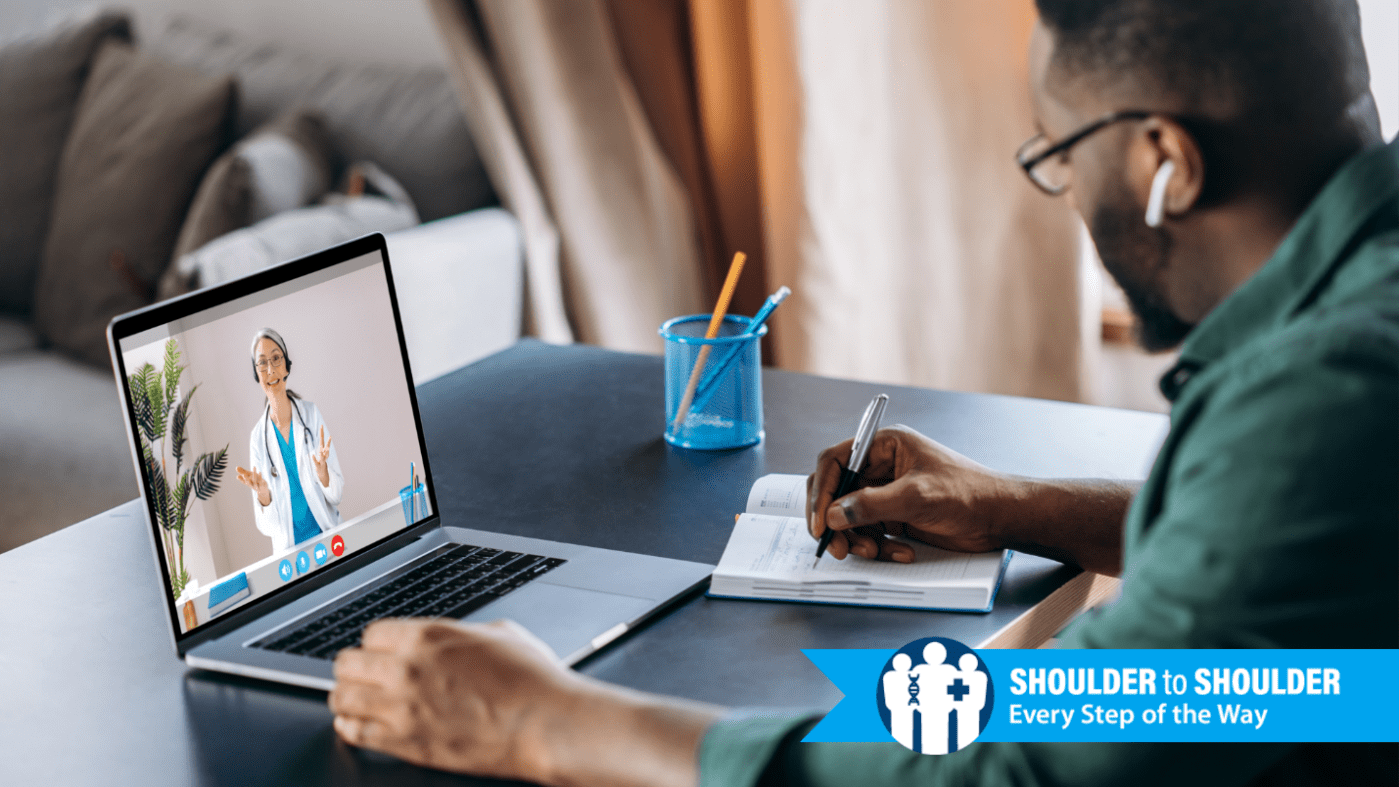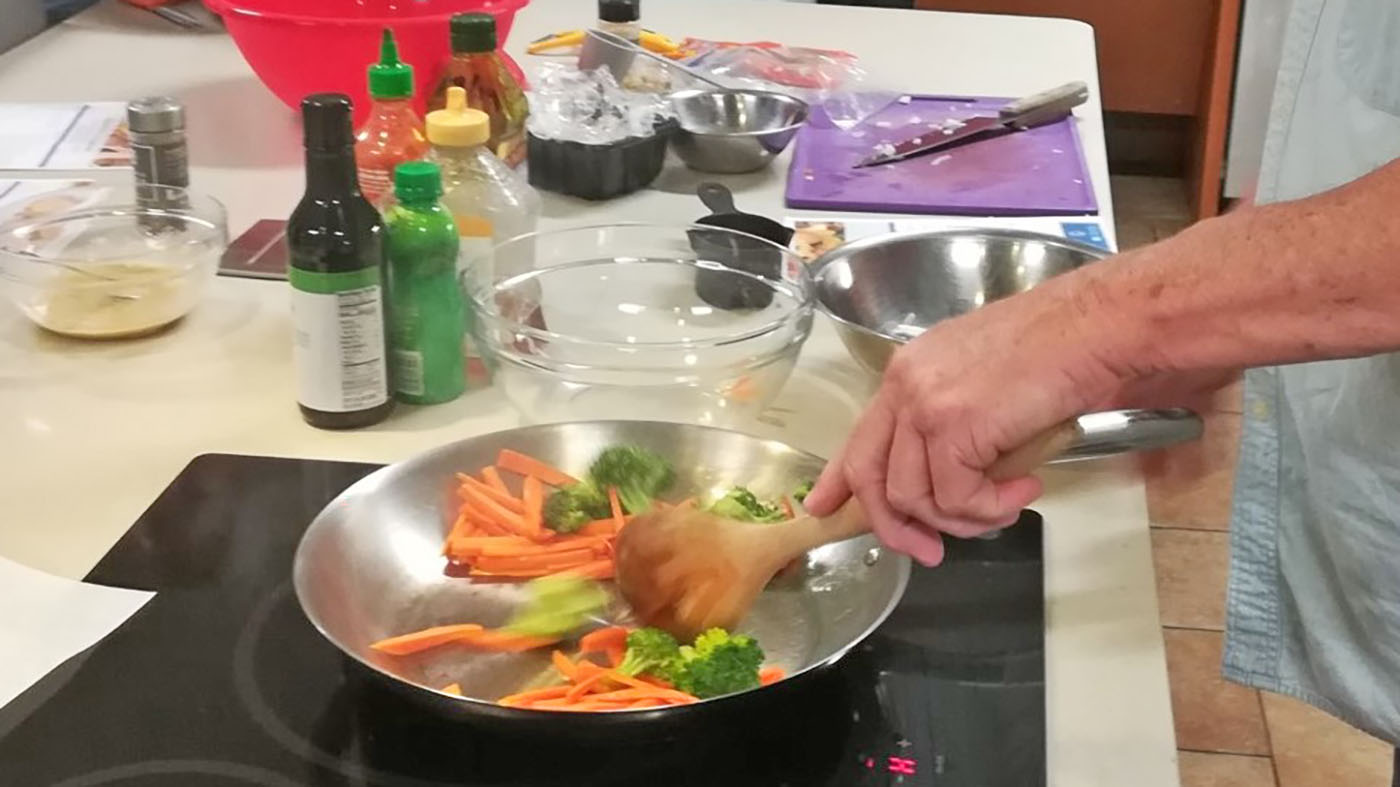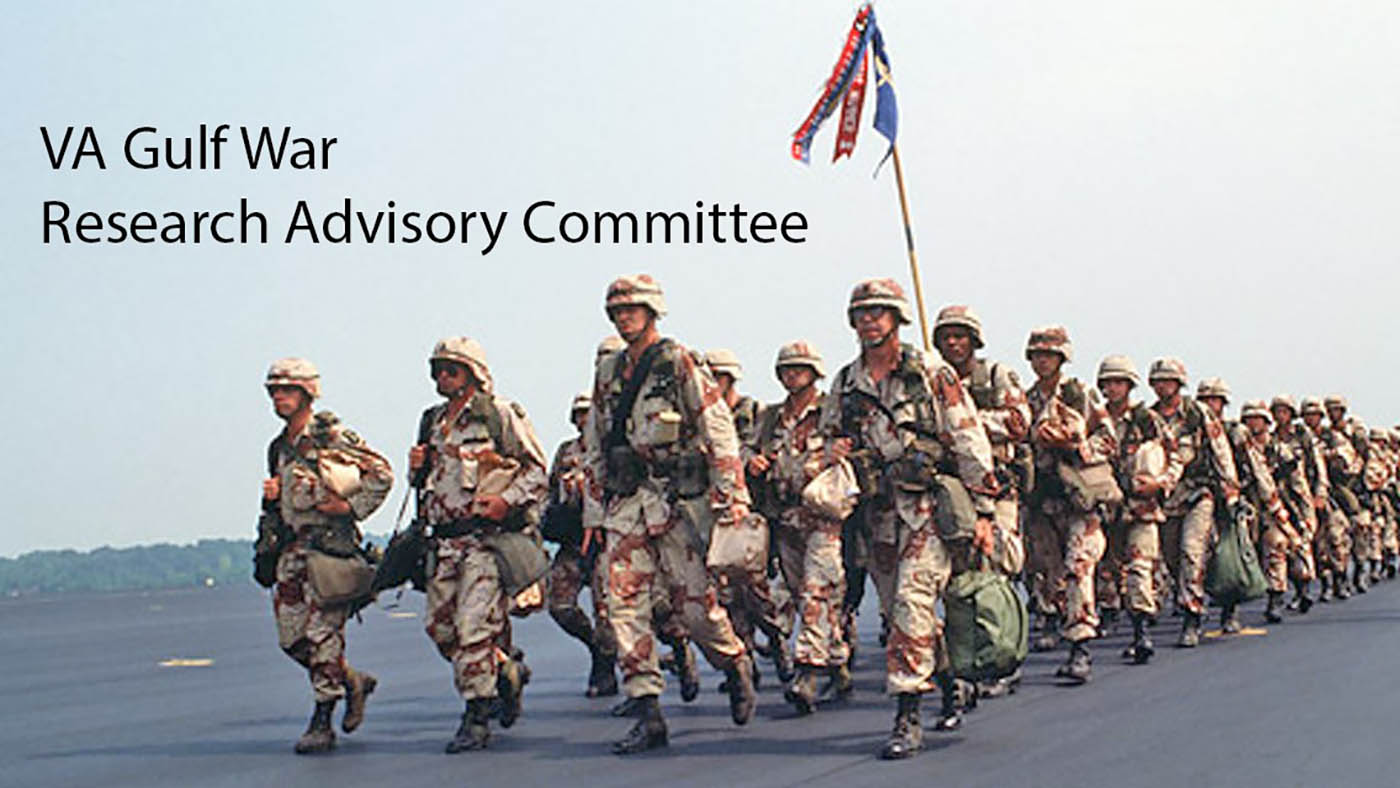Through a partnership with the Bristol Myers Squibb Foundation, VA’s National Oncology Program (NOP) is expanding TeleOncology access to Veterans across the nation with the National TeleOncology Program (NTO). TeleOncology provides cancer care virtually through telecommunication technology, connecting patient and provider across great distances. NTO delivers cancer screenings, diagnostics and treatment for Veterans via telemedicine.
“The National TeleOncology Program is really transforming the future of oncology care,” said Gina McWhirter, MBA, MSN, RN, director of National TeleOncology. “Our Veterans benefit not only from the convenience of telehealth, but also the innovative and compassionate care from our providers.”
Every year, approximately 50,000 Veterans are diagnosed with cancer by VA. According to an American Society of Clinical Oncology (ASCO) workforce report, 66% of rural counties have no oncologist. Veterans in these counties will face issues accessing care due to a lack of cancer providers in their area. Through TeleOncology, providers are able to reach these Veterans regardless of where they are located.
“VA is unique compared to other healthcare systems because we can provide telehealth care across state lines,” said Vida Passero, MD, MBA, chief medical officer, VA National TeleOncology, stationed in Pittsburgh, PA.
VA uses a “hub-and-spoke” model for TeleOncology, with the main hub based in the Durham VA Medical Center. VA cancer specialists around the country work through NTO from their local VA Medical Center office, providing care virtually to a selected spoke site. Patients can connect with providers two different ways: They can either travel to a spoke site to connect with clinical video telehealth (CVT), or connect from their home using an internet-connected device with VA Video Connect (VVC).
Choose VA for specialty care and clinical trials
NTO makes it easy for Veterans to choose VA for their cancer care. The program attracts Veterans who don’t have access to specialists for their type of cancer. Mark Maddox, MD, works out of the NTO hub in Durham and has met patients who returned to VA because a cancer specialist was now available via telehealth.
“Some Veterans may have left VA because a specialist wasn’t available in their area,” Maddox said. “Telehealth not only connects them to best-in-class oncology providers but also removes the burden of travel, which has been especially needed during COVID-19. It’s been rewarding to provide care closer to home for Veterans.”
As an NTO provider, Maddox values the wealth of collaborative opportunities TeleOncology provides across VA’s healthcare system. TeleOncology providers have access to a vast network of expert consultants who can advise on patient care. NTO also gives Veterans who don’t live near a clinical trial the opportunity to participate in critical VA cancer research.
“VA is a connected system that allows for collaboration,” said Maddox. “The TeleOncology model really harnesses this national network to provide high-quality care to all patients.”
Improving patient outcomes through partnership
Through the power of partnerships, VA increases access to services that revolutionize cancer care. With a $4.5 million grant from the Bristol Myers Squibb Foundation, NTO is expanding across the nation with more subspecialty oncology care. Currently six TeleOncology sites receive some type of CVT or VVC support, with dozens more being brought online.
NOP has other partnerships with IBM Watson Health, Prostate Cancer Foundation (supporting the National Precision Oncology Program) and Sanford Health (supporting Pharmacogenomic Testing for Veterans).
“Industry commitments are truly improving outcomes for Veterans who otherwise may not receive these potentially life-changing services,” said McWhirter. “As our Precision Oncology ecosystem continues to evolve, so does the quality and accessibility of Veterans’ care, largely thanks to our partners.”
Why Veterans choose TeleOncology
Veterans choose VA TeleOncology for their care because:
- Patients and their caregivers can easily attend appointments
- Connection to high-quality cancer treatment without spending time, money, and energy traveling long distances for care
- Consultations from VA’s national oncological experts for Veterans with rare cancers
- Access to innovative clinical trials for Veterans regardless of where they live
For more information on how VA works shoulder-to-shoulder with strategic partners to expand access and reduce barriers to cancer care for Veterans across the nation, please visit cancer.va.gov, or contact cancer@va.gov.
Courtney Franchio is a program manager with VA’s National Oncology Program.
Topics in this story
More Stories
VA promotes early nutrition intervention for chronic kidney disease with targeted programs like Heathier Kidneys Through Your Kitchen.
VA Research Advisory Committee on Gulf War Veterans’ Illnesses hosting Veteran Engagement Sessions in Phoenix for 1990-91 Gulf War Veterans.
Navy Veteran and president of the American Medical Association got a colonoscopy and encourages other Veterans to do the same.






